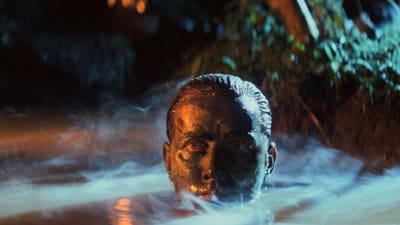
We all know Helen Mirren could play any part but one part she would never play, “Bond. James Bond.” For six decades, that iconic name and catchphrase have defined one of cinema’s most popular spy franchises, though naturally the face attached to it has changed many times. Since his 1962 silver-screen debut, England’s most charismatic secret agent has been portrayed by seven different actors, the last of whom, Daniel Craig, completed his definitively final mission with 2021’s No Time to Die. The seven stars are all bound by one constant, which actress Helen Mirren recently cited as essential to the character.
James Bond: Unrealistic but Decidedly Male
In her August 18 Saga Magazine interview alongside co-star and former James Bond himself Pierce Brosnan, Helen Mirren compared 007 to the retired secret agent whom she portrays in the forthcoming crime film The Thursday Murder Club. Asked whether her own character were superior to the most iconic representation of the British spy, she described her character as “more realistic, but not so much fun as Bond,” then added the following aside:
I’m such a feminist, but James Bond has to be a guy. You can’t have a woman. It just doesn’t work. James Bond has to be James Bond, otherwise it becomes something else.”
“It Just Doesn’t Work”?
Mirren’s remark is intriguing for its utter offhandedness. Taken in full context, it’s pretty much a non-sequitur, and Mirren didn’t see the need to elaborate on the reasoning behind it. Perhaps she was merely reiterating a statement from another interview from The Standard earlier this year, in which she objected to the notion of a female Bond on the grounds that “the whole concept of James Bond is drenched and born out of profound sexism.” Here, once more, she doesn’t explain in any detail beyond th e following assertion: “I never liked the way women were in James Bond.”
Now, it’s certainly nothing novel to point out the James Bond franchise’s lapses in the arena of women’s treatment, the most prominent of which is the titular protagonist’s consistent characterization as a womanizer – at best. Shortly before the release of No Time to Die, which depicts Bond’s excesses in very mild form, director Cary Fukunaga cited a film from the ’60s Sean Connery era in which Bond commits a rape. Fukunaga was speaking in the context of a discussion about how his film was striving to improve the franchise’s representation of women.
Should We Expect Further Progress?
In light of such a past example, the bar to be cleared is a pitifully low one, and Mirren’s comments suggest that this bar may have an upper limit. Is this upper limit an element of the “fun” that Mirren was referring to? Will either the forthcoming Denis-Villeneuve-directed installment or the unrelated reboot starring Henry Golding retain the roguish charm of the character’s self-indulgences as they were handled in No Time to Die? Given the strength of its brand recognition, it’s certainly hard to imagine that this franchise will fade anytime soon; whether it will become “something else” remains to be seen.
More must-reads:
Breaking News
Trending in Entertainment
Customize Your Newsletter
 +
+
Get the latest news and rumors, customized to your favorite sports and teams. Emailed daily. Always free!








